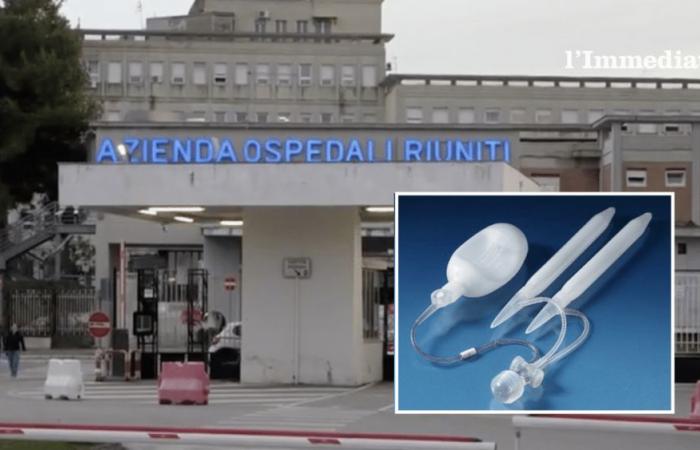TOEven in the South there is no shortage of excellence in the NHS. This is the case of the Departmental Structure of Andrology and Reconstructive Surgery of the External Genitals of the Policlinico Riuniti of Foggia where 1 in 4 patients comes from outside the Region, often from the North, contrary to what usually happens. The numbers say it: in 2023 alone, over 900 interventions for uro-andrological pathologies were carried out at the facility, all provided with the National Health Service.
Among these, the reconstructive implants of penile prostheses (Pp) and artificial urinary sphincters (Sua), today among the most decisive therapeutic solutions after prostate cancer (prostatectomy), to restore autonomy, health and quality of life to many men . Leading the department, attached to the Nephro-Urology department directed by the professor Giuseppe Carrieri, it’s the professor Carlo Bettocchi, former professor at the Bari Polyclinic, Chairman of the Andrological Section of the European Association of Urology (Eau) and past President of the European Society for Sexual Medicine (Essm), strongly committed, with his team, to guaranteeing both the high medical level and the quality standards that characterize the structure and define its identity: large and comfortable spaces, specialized nursing care, hospital clothing for all patients.
Bettocchi – reports a note – among the leading experts in functional and reconstructive urology interventions after prostate cancer therapy, supports the rights of men who are not adequately supported in the period following treatment. They often have to independently seek guidance on the paths to take and, above all, they do not see their rights as patients adequately protected. After the removal of breast cancer (mastectomy), women have now gained 360-degree support, protection and rights, while none of this exists for men after the removal of prostate cancer (prostatectomy).
Penile prostheses are an effective option in cases of erectile dysfunction that does not respond to medical therapy – we read – the pathology is tackled in the initial phase especially with pharmacological therapies. In 30% of cases, however, the response to oral or injective treatments, with prostaglandins injected directly into the penile tissue, may be inadequate or even absent. In these cases, the implantation of a penile prosthesis is highly effective in restoring the full functionality of the organ involved and, therefore, erection. Technically, the operation involves the insertion of small prostheses, semi-rigid or hydraulic, which allow an erection not different from the natural one, with the same sensitivity and capacity for ejaculation and unchanged urinary function. All components of the prosthesis are implanted inside the body and are not visible from the outside, a key element for patient acceptance and reassurance. As regards, however, artificial urinary sphincters are intended for patients who develop urinary incontinence following the destructive prostatectomy operation which in 5-10% of cases can persist even after some time.
The prosthesis – the note details – is hidden inside the body, allowing the continence functions to be fully restored. According to the international study ‘Artificial urinary sphincters as a treatment for post-prostatectomy severe urinary incontinence in Italy: a cost-utility’, following the implantation of the prosthesis the patient drastically reduces the daily use of diapers (to date the solution most widespread) which go from ten to 0/1 per day, with savings for the NHS and a significant improvement in the quality of life. Professional training is essential. Since 2022, the Structure has hosted an international ‘fellowship’ (supported by the European Society for Sexual Medicine – Essm) as one of the 5 European reference centers in the field of prosthetic implantology (in addition to London, Madrid, Kiel and Leuven). Furthermore, it represents a reference point of excellence for young doctors aiming for high-level training in this sector. In 2023, the departmental structure carried out multiple training sessions on these topics, with the development and certification of 3D organs and the presentation of innovative procedures.
One of the most advanced training centers for urological and andrological surgeons will soon be inaugurated at the hospital, equipped with cutting-edge equipment such as the latest generation simulators and cadaver lab. Recently, the Aou of Foggia Ospedali Riuniti received an honorable mention from the Onda Foundation as part of the ‘Best practice 2023’ initiative as one of only 2 ‘centres of excellence and reference for the management of post-operative functional complications’. -operations for prostate cancer’. In the structure – concludes the note – there is also space for sex reassignment surgery in gender disorders (transsexualism). In Italy there are just three public centers where these interventions are carried out: in addition to Foggia, Florence and Trieste. Finally, the department collaborates with the gynecology team in the Medically Assisted Procreation Center (Pma) of the Polyclinic of Foggia, the only one in Puglia and among the most advanced in the sector that manages the infertility problems of couples from all over Italy. (Com-Fil/Adnkronos Health)






